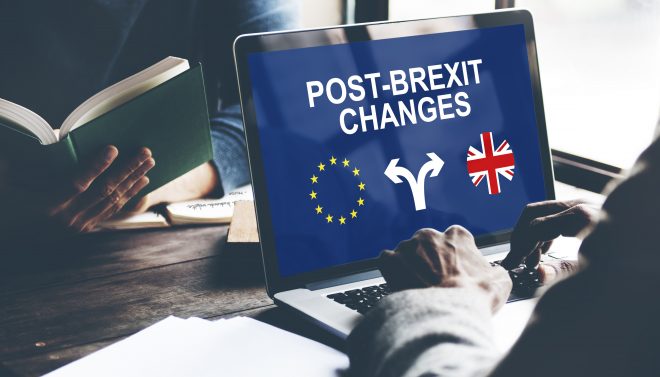For months the team at Quattro Foods has been asking a burning question. How will the UK’s departure from the EU affect the food industry? It’s been an uncertain and anxious time but the conclusion we have reached is that it may not be all doom and gloom.
The list of challenges faced by Brexit is growing. From customs checks to export delays; from bans on live seafood exports to general supply chain problems, headlines portray the changeover as an endless and frustrating game of ‘whack-a-mole’.
The impact of Brexit for the food and beverage sector is undeniably huge for UK food producers and all food manufacturers serving the UK market. Luckily the trade deal has avoided punishing tariffs – households and businesses collectively breathe a sigh of relief. Unfortunately supply chains will inevitably be affected by the curbing of the free movement of products across the border but Brexit is our harsh new reality and we are choosing to see it as an opportunity. There’s no escaping the short-term impact of the changes on our industry. Food prices are almost certainly facing a hike; however shopping habits are changing and food manufacturers that innovate may benefit from Brexit. So, let’s innovate.
Could some food supplies be sourced more cheaply from within the UK? It could be our chance to encourage sustainable food production and diminish the environmental impacts of manufacturing for the benefit of our customers, our industry and our planet.
If businesses adapt, job creation across the UK is possible and will allow British food manufacturers and producers to deliver high standards at competitive consumer prices.
The 4 key impacts of Brexit on the food industry are:
- Rules of origin. We are obliged to specify the exact proportion of a manufactured product that has been produced locally.
- Food safety and standards. British businesses exporting goods such as meat and dairy into the EU will have to fulfil a number of requirements.
- Transport. Good news for hauliers. They can continue to operate between the UK and EU without much change, although the number of trips is limited.
- Heat-treated pallets. Exporters must use heat-treated wooden pallets when transporting goods to the EU, to prevent contamination and the spread of pests.
If we have the right policies in place, we can make a success of the UK’s independent status and maintain our high food standards and our ability to deliver sustainably produced food at competitive prices. We can deliver the benefits to every UK community by producing, packaging, distributing and selling a wide range of food and drink, more than ever before, in every corner of the UK.
At Quattro Foods we’re a ‘glass half full’ lot and we are committed to using our new regulations to the benefit of our partners and our end customers. It’s a brave new world and we will innovate tirelessly to help our industry get back on its feet.

